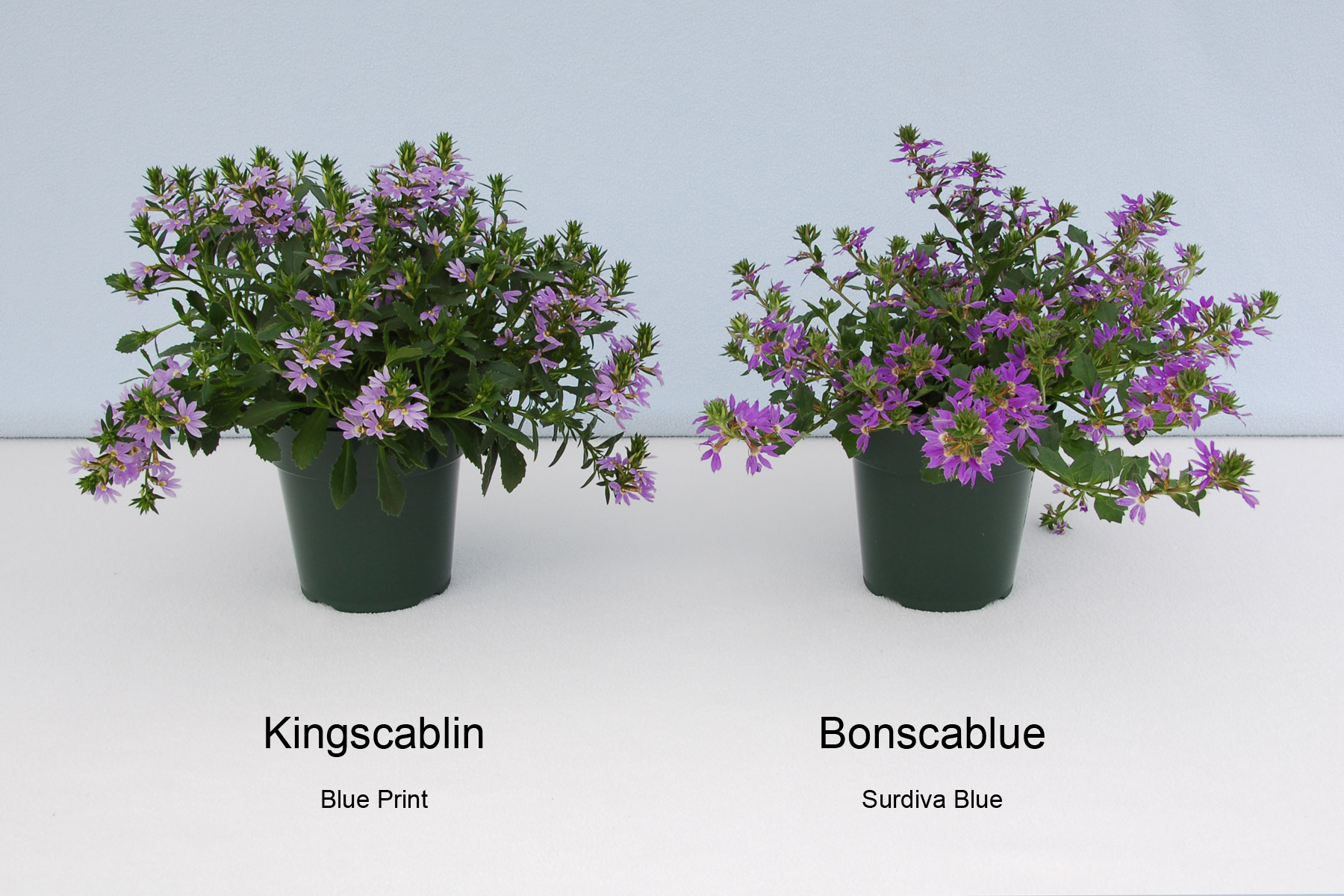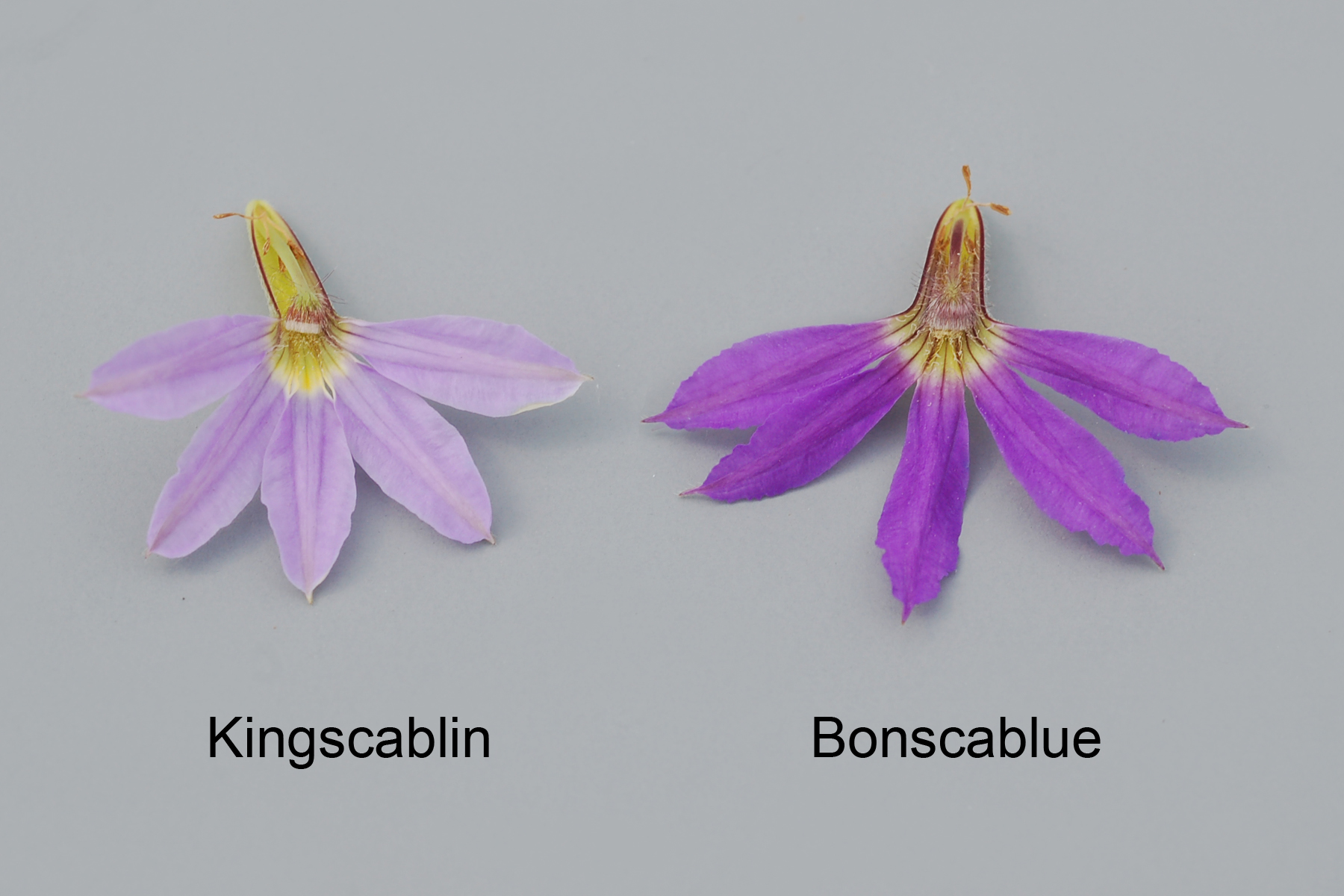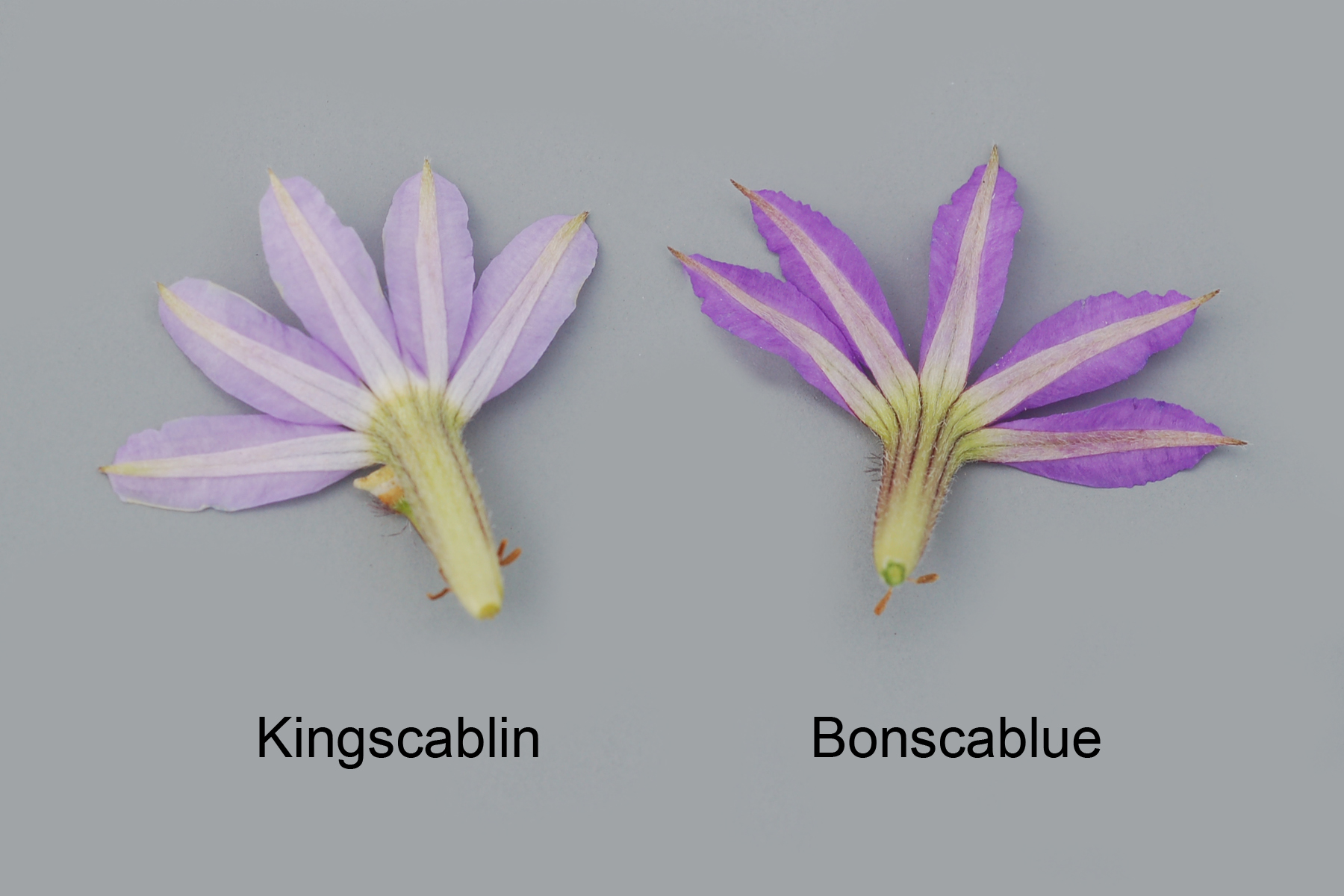Kingscablin
| Denomination: | 'Kingscablin' |
|---|---|
| Trade name: | Blue Print |
| Botanical Name: | Scaevola aemula |
| Applicant/Holder: |
Botanic Gardens and Park Authority Fraser Avenue West Perth, Western Australia 6005 Australia |
| Breeder: |
Patrick Courtney, Botanic Gardens and Park Authority, West Perth, Australia |
| Agent in Canada: |
BioFlora Inc. 38723 Fingal Line R.R. #1 St. Thomas, Ontario N5P 3S5 Canada Tel: 519-317-7511 |
| Application Date: | 2009-03-16 |
| Application Number: | 09-6527 |
| Grant of Rights Date: | 2011-09-14 |
| Certificate Number: | 4176 |
| Date rights surrendered: | 2012-09-21 |
Variety Description
Variety used for comparison: 'Bonscablue' (Surdiva Blue)
Summary: The leaves of 'Kingscablin' are longer than those of 'Bonscablue'. The petals of 'Kingscablin' are a lighter violet than those of 'Bonscablue'.
Description:
PLANT: vegetatively propagated, annual type, bushy-rounded growth habit, many branches, strong basal branching
STEM: light green, no anthocyanin colouration, sparse pubescence, thin, smooth shape
LEAF: alternate arrangement, simple type, oblanceolate, acute apex, attenuate base, dentate margin, medium pubescence on upper and lower sides, dark green on upper side, medium green on lower side, no variegation
FLOWER: almost continuous flowering, mid-season flowering, long flowering period, spike inflorescence type, terminal position
COROLLA: petals free, fan shaped
PETAL: entire margin, weak undulation of margin, elliptic, cuspidate apex, violet (RHS N87C) with violet to light blue violet (RHS N87B-85B) stripe on inner side, blue violet to light blue violet (RHS N88C-85C) on outer side
COROLLA THROAT: dense pubescence, yellow to yellow green (RHS 2B-C) on inner side, light green (RHS 145D) on outer side
Origin & Breeding History: 'Kingscablin' originated from a cross between the female parent a proprietary Scaevola aemula breeding selection designated 04/128d and the male parent the Scaevola aemula variety 'Scawihatis' (Whirlwind White). The cross was conducted on March 17, 2006 at Botanic Garden and Parks Authority in Australia, as part of a controlled breeding program. The initial selection of 'Kingscablin' was made in September 2006 based on flowering time and growth habit. Asexual reproduction since that time has been through the use of vegetative cuttings.
Tests & Trials: Trials for 'Kingscablin' were conducted in a polyhouse during the spring of 2010 in St. Thomas, Ontario. Trials included 15 plants each of the candidate and reference varieties. Rooted cuttings were transplanted into 15 cm pots on May 19, 2010. Observations and measurements were taken from 10 plants of each variety on July 10, 2010. All colour determinations were made using the 2007 Royal Horticultural Society (RHS) Colour Chart.
Comparison tables for 'Kingscablin' with reference variety 'Bonscablue'
Leaf blade length (cm)
| 'Kingscablin' | 'Bonscablue' | |
|---|---|---|
| mean | 8.8 | 5.8 |
| std. deviation | 0.62 | 0.47 |
Colour of inner side of petal (RHS)
| 'Kingscablin' | 'Bonscablue' | |
|---|---|---|
| main | N87C | N82A |
| secondary | N87B along mid-veins and 85B in centre | N/A |
Colour of outer side of petal (RHS)
| 'Kingscablin' | 'Bonscablue' | |
|---|---|---|
| main | N88C with 85D in middle | N82B with 85D in middle |
Click on image for larger view

Scaevola: 'Kingscablin' (left) with reference variety 'Bonscablue' (right)
Click on image for larger view

Scaevola: 'Kingscablin' (left) with reference variety 'Bonscablue' (right)
Click on image for larger view

Scaevola: 'Kingscablin' (left) with reference variety 'Bonscablue' (right)
- Date modified: